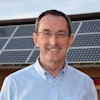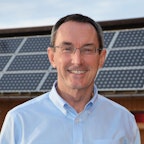Heat Pumps 101

About this course
Learning how they work is a great start. “Heat Pumps 101” is a new free course from John Siegenthaler. It takes less than an hour to complete. You’ll learn the very basics of heat pump technology, including heat transfer, refrigeration, and what applications are commonly used. At the end you’ll be able to speak intelligently about heat pumps and what they do.
Course outline
Module 1 • 12 assignments
How Heat Pumps Work
Conclusion • 3 assignments
Feedback and Additional Resources
Author

John Siegenthaler
John Siegenthaler, P.E., is a mechanical engineering graduate of Rensselaer Polytechnic Institute, a licensed professional engineer, and Professor Emeritus of Engineering Technology at Mohawk Valley Community College. “Siggy” has over 40 years of experience in designing modern hydronic systems. He is a hall-of-fame member of the Radiant Panel Association, and a...